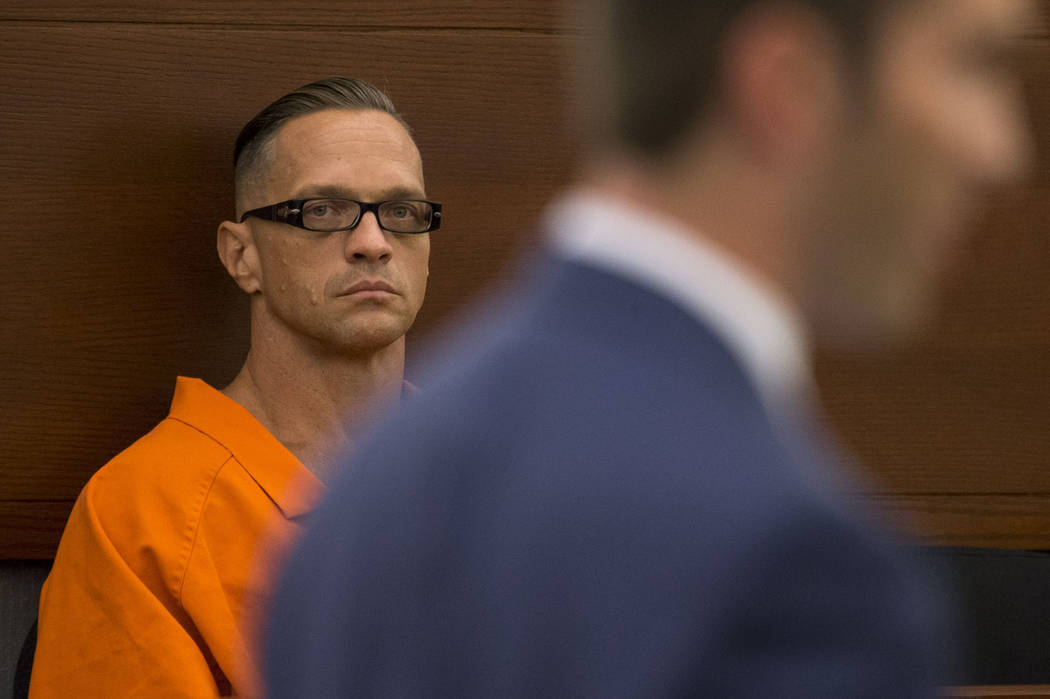Dozier tried to smuggle in ‘potent drugs,’ Nevada prison officials say

Nevada prison officials say they had “no choice” but to place condemned inmate Scott Dozier in isolation after his second canceled execution.
Dozier, who was first scheduled to die in November 2017, made repeated threats about suicide and even went to lengths to carry out his own demise, according to papers filed in federal court by the Nevada Department of Corrections.
The inmate tried to smuggle “potent drugs” through the prison mail system, according to the filing, which was a response to a motion from his lawyers to stop placing him in isolation, where they said he was deprived of “basic human needs.”
Chief Deputy Attorney General Randall Gilmer, representing the prison system, argued that Dozier was treated according to suicide prevention policy.
Twice after orders from Las Vegas judges delayed his execution, Dozier was placed in an isolated cell and was closely monitored for potential suicide at Ely State Prison, where he has been on death row for more than 11 years after being convicted of two murders.
According to federal public defenders, the periods of seclusion lasted up to 29 days at a time.
The documents filed by the prison system on Friday also stated that Dozier’s sister tried to provide him with “a detailed anatomy textbook with information specifying the best possible way to ensure death by cutting the jugular vein or major arteries in his neck.”
Dozier asked his sister in a phone call to send him anatomy information.
“In the same conversation, he reiterated the fact that while he was looking forward to seeing her, he had ‘mixed emotions’ and that ‘he’s not looking forward to still being in prison,’” the papers stated.
Through prison mail, he tried to have a fentanyl-soaked letter sent to fellow death row inmate Bryan Hall, a friend who appeared willing to aid Dozier’s efforts, according to the documents.
Fentanyl is one of three drugs listed in the state’s lethal injection cocktail.
In an October letter, Hall wrote that he knew that Dozier “probably [would] take things into his own hands soon,” the documents stated.
Dozier later obtained razor blades and nail clippers in an attempt to cut himself, prison officials said in the filing.
“Given these undisputed facts, the state had no choice but to take appropriate precautions to ensure that Dozier was not a threat to himself,” according to the prison system’s response.
On Nov. 2, he was returned to the condemned men’s unit of the prison, but should he threaten or attempt suicide again, he would be put back in an isolated observation cell.
“Any ruling from this court that prevents NDOC from protecting Dozier’s well-being, if needed, may have the effect of facilitating Dozier’s suicide,” the filing stated.
Dozier’s execution was halted in July, for the second time in nine months, after a drug company sued the prison system, saying that its sedative had been obtained by the Nevada Department of Corrections through subterfuge. Dozier would be the first prisoner executed in Nevada since 2006.
The inmate, who waived his appeals in late 2016, was sentenced to die in 2007 after first-degree murder and robbery convictions in the killing of Jeremiah Miller. Dozier had a murder conviction in Arizona before he was brought to Nevada to face charges in Miller’s death.
Gilmer called the federal public defenders’ attempt to prevent Dozier’s isolation “recklessly circular.”
“They claim that being on observation exacerbates Dozier’s already-suicidal desires stemming from the execution stays so NDOC should be barred from putting him on observation while he nonetheless still wants to kill himself in the general population,” Gilmer wrote.
Contact David Ferrara at dferrara@reviewjournal.com or 702-380-1039. Find @randompoker on Twitter.
Scott Dozier Appendix by on Scribd
Scott Dozier Response by on Scribd